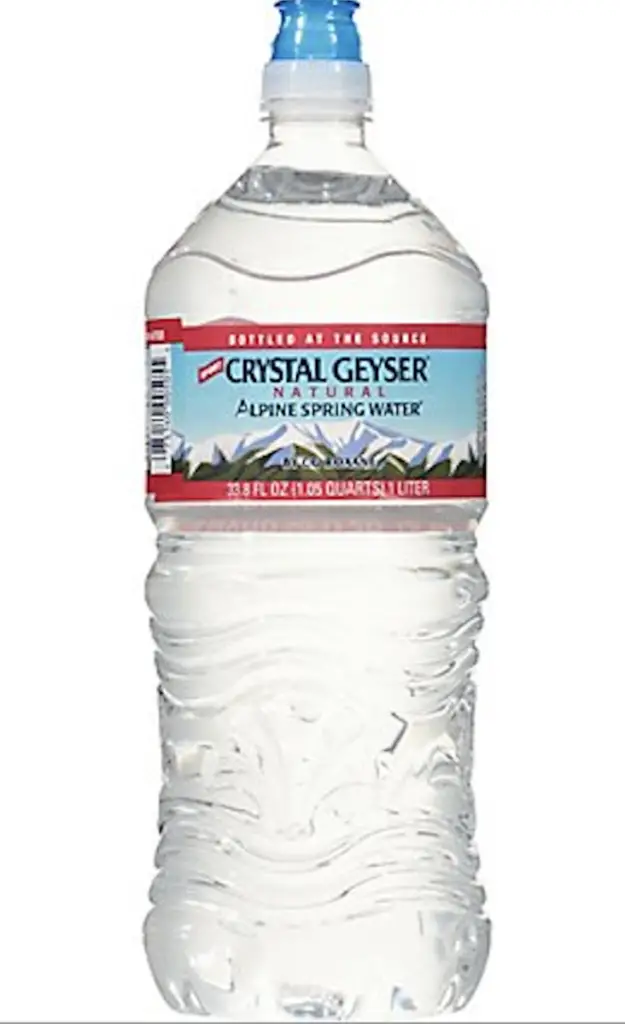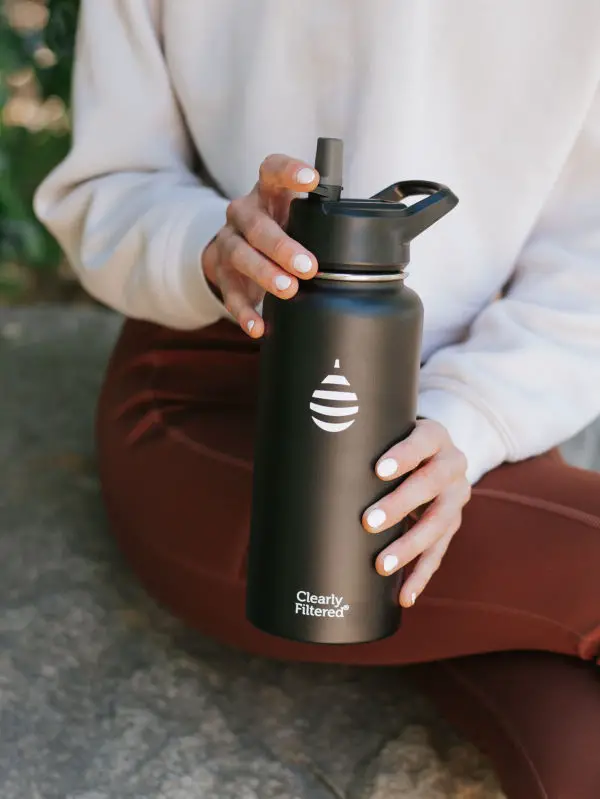Discovering bottled water brands that are low in calcium can be beneficial for individuals seeking to manage their calcium intake. With the prevalence of tap water containing elevated calcium levels in various regions, low-calcium bottled water options offer a refreshing and health-conscious alternative.
Let’s explore the role of calcium in drinking water and which types of water are low in calcium to ensure a healthy and balanced hydration routine.
The Role of Bottled Water
In the vast majority of the United States, tap water tends to have elevated calcium levels, making it unsuitable for individuals who require a low-calcium diet.
Bottled water that has undergone purification processes typically contains lower levels of minerals, including calcium. However, it’s essential to be mindful of the brand when selecting bottled water, as some exceptions offer water with low calcium content.
Choosing the right water brand can make a difference, especially for individuals who need to manage their calcium intake for health reasons. Opting for low-calcium water not only ensures proper hydration but also helps maintain a balanced calcium intake.
Bottled Water Brands: With Low or No Calcium

While calcium is essential for our overall health, some individuals, like those with certain medical conditions such as hypercalcemia (high calcium in the blood), may need to limit their calcium intake. Drinking water can be an added source of calcium, so choosing low-calcium water brands can help meet your hydration needs without going overboard on calcium.
Here are the best brands of water low (or no) calcium, including the percentage of daily calcium intake provided by each brand of bottled water based on their calcium content:
Alkaline88
Alkaline88 Purified Ionized Water boasts a high alkaline pH of 8.8 and contains no detectable calcium. Although the producer adds some minerals after the chemical-free purification process, the amount of each mineral, including calcium, is negligible due to the use of 88 types of Himalayan pink salt. The water is sourced and bottled in the United States.
Daily Calcium Intake = 0% – Alkaline88 has no detectable calcium, making it a calcium-free water option.
Aquafina
Aquafina, owned by Pepsi Cola, is a popular brand of purified tap water. Through an extensive purification process that includes reverse osmosis, carbon filtration, ozonation, and UV light, Aquafina achieves a total dissolved solids (TDS) score of 4 mg/l. As a result, it contains precisely zero calcium. This information is supported by both their own quality report and a verified 2006 study.
Daily calcium intake = 0% – This water contains zero calcium, so it does not contribute to your daily calcium intake.
Voss
Both Voss Still and Voss Sparkling water contain a minimal amount of calcium, with only 3 mg/l. This makes it an excellent choice for individuals who prefer water with a slight mineral taste but need to limit their calcium intake. Originating from aquifers, Voss water is a Norwegian brand available in recyclable plastic or glass bottles.
Daily Calcium Intake = <1% – Both still and sparkling water from Voss contain only 3 mg/l of calcium, contributing minimally to your daily calcium intake.
Icelandic Glacial
Icelandic Glacial Natural Spring Alkaline Water contains 5.1 mg/l of calcium and boasts a high alkaline pH of 8.4. Sourced and bottled from the Olfus spring in Iceland, this water is naturally low in minerals, resulting in its low calcium score. Icelandic Glacial is available in glass and plastic bottles in various sizes.
Daily Calcium Intake = <1% – Icelandic Glacial water has 5.1 mg/l of calcium, offering a tiny portion of your daily calcium intake.
Penta
Penta Ultra-Purified Water undergoes a meticulous 13-step purification process, including carbon filtration, micron filtration, two-stage reverse osmosis, ion exchange, UV light disinfection, and ozonation. This process ensures the removal of all impurities, including calcium, resulting in water with zero calcium content confirmed in this study. Penta starts as rainwater stored naturally in aquifers below the San Bernardino Mountains and is purified to the highest degree.
Daily Calcium Intake = 0% – Penta water goes through a thorough purification process and contains no calcium, offering no contribution to your daily calcium intake.
Essentia
Essentia Bottled Water is purified tap water enriched with minerals and electrolytes in trace amounts. However, the calcium content remains below 1 mg/l, making it barely detectable. Using microfiltration and reverse osmosis, Essentia achieves a high pH level of at least 9.5, making it one of the few alkaline water types with low calcium levels.
Daily Calcium Intake =<1% – With calcium levels below 1 mg/l, Essentia provides an extremely small fraction of your daily calcium needs.
Poland Spring
Poland Spring Origin Water contains 4.2 mg/l of calcium, adding a subtle taste without significantly contributing to daily calcium intake. This brand also offers Distilled Water, which is entirely free of calcium. Sourced from springs in Maine, Poland Spring water is available in various options to suit different preferences.
Daily Calcium Intake =<1% – Poland Spring Origin Water contains 4.2 mg/l of calcium, providing a negligible amount of calcium in your diet.
Core Hydration
Core Hydration Nutrient-Enhanced Water is a popular sports drink with 5 mg/l of calcium and a mildly alkaline pH of 7.4, matching the body’s natural pH level. After purification, the water undergoes mineral and electrolyte enrichment. Core Hydration is available in both regular and organic versions with the same calcium content.
Daily Calcium Intake =<1% – With 5 mg/l of calcium, Core Hydration offers a minimal contribution to your daily calcium needs.
Nestle Pure Life
Nestle Pure Life Purified Water is a common brand of purified water with varying calcium content between 4.2 and 10 mg/l, depending on the batch. While the lower calcium content is ideal, even the higher amounts may not significantly impact daily calcium intake. Nestle Pure Life is a popular choice available in many regions.
Daily Calcium Intake = <1% – The calcium content varies, but some batches have as little as 4.2 mg/l, providing a very small percentage of your daily calcium intake.
Dasani
The calcium content of Dasani Purified Water also varies by batch, with all tested batches below 10 mg/l in a 2006 study. Owned by Coca-Cola, Dasani enhances its water with minerals for taste and uses 30 percent plant materials in its packaging.
Daily Calcium Intake = <1% – Dasani’s calcium content varies, but it usually falls below 10 mg/l, contributing minimally to your daily calcium needs.
Arrowhead
Arrowhead Distilled Water is calcium-free, making it an excellent choice for individuals seeking water with no mineral content. However, Arrowhead’s Spring Sparkling water does contain calcium, so consumers should ensure they choose the right product according to their preferences.
Daily Calcium Intake = 0% (Distilled version), <1% (Spring Sparkling) – The distilled version of Arrowhead contains no calcium, while the Spring Sparkling water has a small amount, offering a negligible contribution to your daily calcium intake.
Crystal Geyser

Crystal Geyser Alpine Spring Water contains some minerals, including 6.0-6.4 mg/l of calcium, while remaining free of harmful substances like cyanide, cadmium, arsenic, mercury, or lead. Sourced from springs in protected forests across the United States, the water is bottled directly at the source.
Dailly Calcium Intake = <1% – Crystal Geyser contains approximately 6 mg/l of calcium, contributing only slightly to your daily calcium needs.
Understanding Calcium: A Crucial Mineral for the Human Body
Calcium holds a vital position as a crucial mineral within the human body, playing multifaceted roles in various physiological functions. Its significance is highlighted by its abundance in our teeth and bones, while also being present in nerve cells, body tissues, blood, and other body fluids. Calcium serves several essential purposes, including:
- Building Strong Bones and Teeth: Our bones and teeth rely heavily on calcium as a major structural component, providing the strength and support needed to sustain our body.
- Blood Clotting: Calcium plays a pivotal role in the blood clotting process, preventing excessive bleeding and facilitating wound healing.
- Nerve Signal Transmission: Proper nerve signal transmission is made possible by calcium, allowing efficient communication between nerve cells throughout the body.
- Muscle Contraction and Relaxation: Calcium’s significance extends to muscle function, enabling precise contraction and relaxation during movements and activities.
- Hormone and Chemical Release: Calcium participates in the release of hormones and essential chemicals in the body, contributing to the regulation of various physiological processes.
Calcium intake is primarily derived from our diet, with dairy products ranking among the best natural sources. Green leafy vegetables, fish with soft bones, nuts, and fortified foods are also valuable sources of this essential mineral. Notably, the role of vitamin D is pivotal in facilitating the proper absorption and utilization of calcium by enhancing its uptake in the intestines.
Maintaining an adequate calcium level in the body is crucial for overall health, particularly in preventing osteoporosis—a condition characterized by hazardous bone thinning. However, it is essential to strike a balance between obtaining enough calcium for bone health and avoiding excessive intake that could lead to potential health risks, such as kidney stones.
Calcium Recommendations
Calcium requirements vary depending on age, sex, and other factors. The Dietary Reference Intakes (DRIs) provided by the Food and Nutrition Board at the National Academies of Sciences, Engineering, and Medicine offer guidelines for calcium intake:
- Infants (0-12 months): 200-260 mg/day
- Children (1-8 years): 700-1,300 mg/day
- Adolescents (9-18 years): 1,300 mg/day
- Adults (19-70 years): 1,000-1,200 mg/day
- Older adults (over 70 years): 1,200 mg/day
Calcium Levels in Tap Water Across the USA
Tap water in most US cities contains varying amounts of calcium, making it important for individuals to be aware of their local water’s composition. The calcium content is typically measured in milligrams per liter (mg/L) or parts per million (ppm).
Variability in Calcium Levels
The levels of calcium in tap water can differ significantly from one region to another, influenced by geological formations and water sources.
It’s essential to understand the general guidelines for calcium levels:
- Low Calcium Levels: In certain areas, tap water may have relatively low calcium content, typically ranging from 5 mg/L to 30 mg/L. Such water is classified as soft water.
- Moderate Calcium Levels: Many regions boast moderate levels of calcium, usually falling between 30 mg/L to 60 mg/L. This type of water is considered moderately hard.
- High Calcium Levels: Some areas may experience tap water with high calcium content, exceeding 60 mg/L. These levels are classified as hard water.
The Dilemma of Too Much Calcium
While obtaining calcium through a balanced diet is ideal, many people turn to calcium supplements to ensure they meet their daily requirements. However, it is crucial to approach calcium supplementation with caution. Some people may go overboard with calcium supplements, believing that more is better for their bones. Unfortunately, excessive calcium intake can lead to various health risks.
The Risk of Kidney Stones
One well-known concern associated with excessive calcium intake, particularly from supplements, is an increased risk of kidney stones. Kidney stones are hard mineral and salt deposits that form in the kidneys and can cause severe pain and discomfort when passed through the urinary tract.
High levels of calcium in the urine can contribute to the formation of kidney stones.
It is crucial to strike a balance in calcium consumption to avoid this complication.
Hpercalcemia and Calcium Intake
People with hypercalcemia may need to limit their calcium intake in their diet.
Hypercalcemia is a condition characterized by elevated levels of calcium in the bloodstream, and excessive calcium consumption can worsen the condition. Therefore, it is essential for individuals with hypercalcemia to be cautious about their calcium intake and follow medical advice regarding their diet.
The recommended daily intake of calcium for the general population is around 1000-1200 milligrams per day for adults. However, for individuals with hypercalcemia, the healthcare provider may suggest a lower calcium intake to help manage their condition.
It’s important to note that not all individuals with hypercalcemia will need to avoid calcium completely.
The specific dietary restrictions and recommendations will depend on the underlying cause of hypercalcemia and the individual’s overall health status. In some cases, certain medical conditions or medications may contribute to hypercalcemia, and addressing those factors may be more critical than restricting calcium intake.
For people with hypercalcemia, it is essential to work closely with a healthcare professional or a registered dietitian who can create a personalized dietary plan that takes into account their specific medical condition and calcium needs.
Following medical advice and making informed dietary choices can play a significant role in managing hypercalcemia effectively and maintaining overall health.
Final Thoughts
While many brands of bottled water contain low to negligible levels of calcium, it’s essential to stay informed about the calcium content in your water choices, especially if you need to manage your calcium intake for health reasons. By opting for water with lower calcium levels, you can stay hydrated and support your overall health without worrying about excessive calcium consumption.
Water is a fundamental element of life, and choosing the right brand can make a positive impact on your well-being. Whether you prefer purified, spring, or alkaline water, there are plenty of options that align with your calcium needs.
So, let’s raise a glass to staying hydrated with the perfect low-calcium bottled water, promoting a healthier lifestyle and maintaining strong bones without any worries. Cheers to better health and a refreshing choice for your hydration needs!
The Best Water Filter Bottle We’ve Ever Used
Clearly Filtered | Stainless Steel Filter Bottles
We really love these filter bottles for keeping your drinks cool and contaminant free! They remove 99.9% of over 220 contaminants and use BPA-free plastics and double-walled stainless steel to produce some awesome looking designs with numerous bottle sizes for every situation. You can find them at Clearlyfiltered.com












